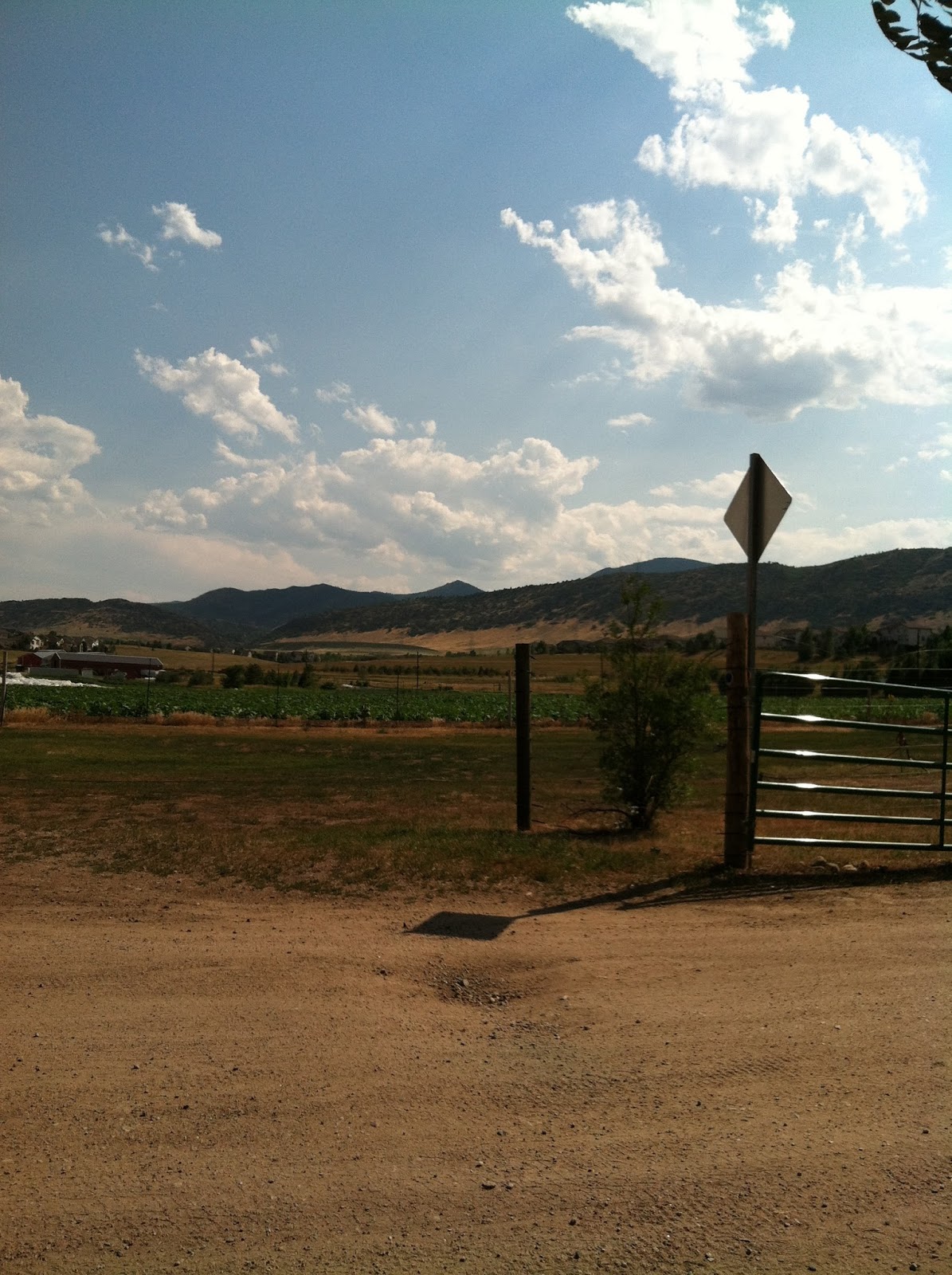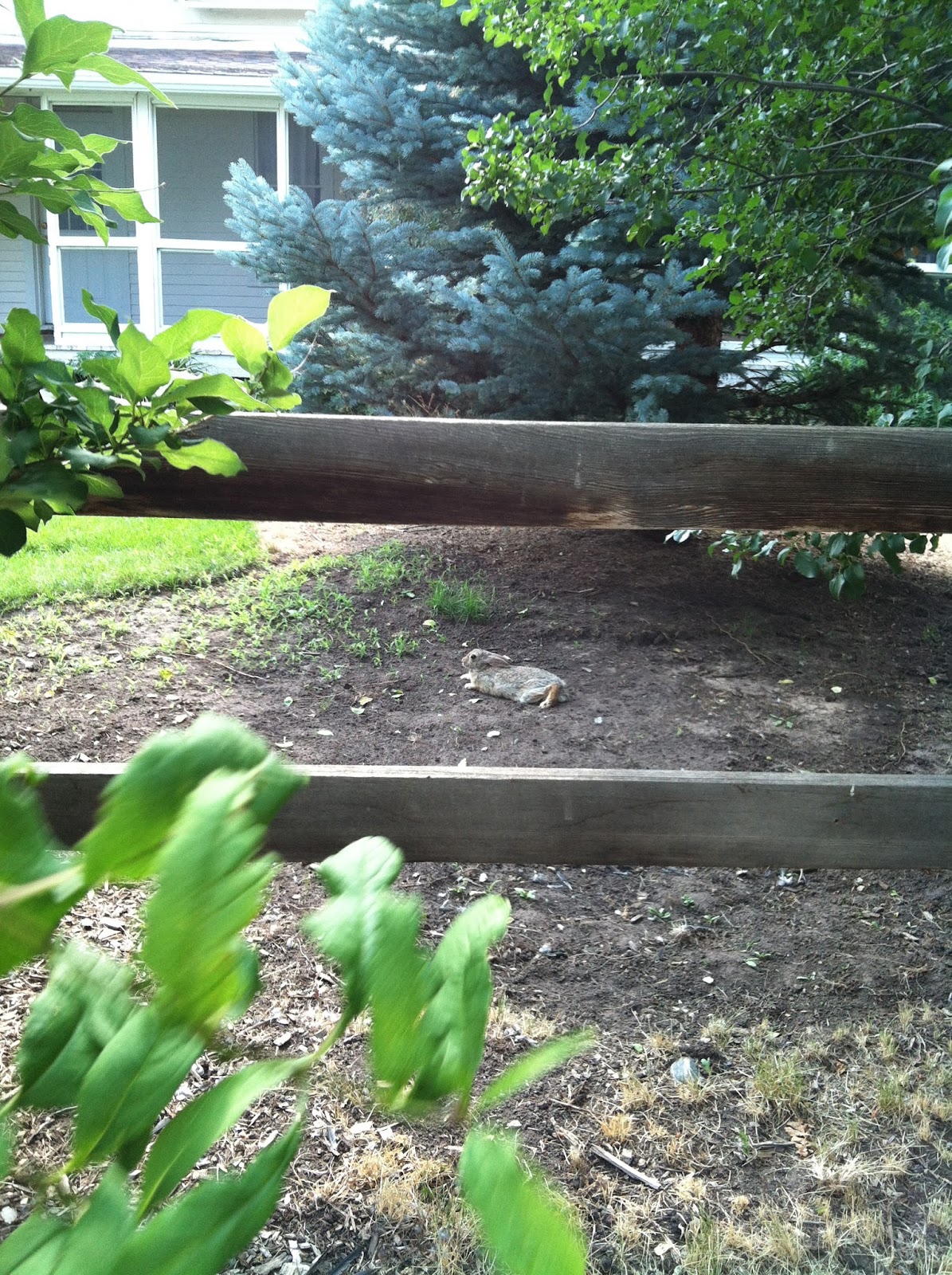2010
We visited Sally's home to learn about rain barrels and structures to extend the growing season.
We finished the Sharing Seminar at Bartram's Garden with one of their educators. The Franklinia was in bloom! John Bartram found this species of tree on the banks of a river in what is now Georgia. He brought several home and experimented until he got them to grow. His son went back years later and could no longer find any so all Franklinia trees that we have today are descendants from his original collection that he grew right here in Philadelphia!
After that we made a quick trip downtown to meet Sally McCabe at the first iteration of the PHS Pop-Up Garden. Located at 20ieth St. on Market, it was a mix of floral gardens and actual food production gardens, with some nice landscaping and water features to consider as well.
 From Mill Creek we headed to Longstreth Elementary School on Willow Avenue. Chuck Lafferty has gradually modified the mostly asphalt school yard with small trees, raised beds for neighborhood gardeners, a pond with water plants, and a peace garden with room for multiple classes to sit together for gatherings.
From Mill Creek we headed to Longstreth Elementary School on Willow Avenue. Chuck Lafferty has gradually modified the mostly asphalt school yard with small trees, raised beds for neighborhood gardeners, a pond with water plants, and a peace garden with room for multiple classes to sit together for gatherings.

Day 2 began at the Overbrook Art and Environmental Center, on Girard Avenue. We were met there by the founder and director, Jerome Shabazz. He has masterfully amassed a collection of institutions and agencies to help him create and implement the center and programs developed with local school students from Overbrook High School.
The grounds contain native pollinator plants, porous paving in the parking area, a playground up on the hillside and a new high tunnel built upon some storage bins from an earlier life of the facility. The large brick building visible above will hopefully become an indoor community facility for farmer's markets and large gatherings to complement the smaller arts center already in use. From here we moved to the Frankford Friends School in Frankford. Our Master Gardener/Librarian friend from Maryland had brought some wonderful gardening resource materials for us and we needed an indoor (and Air Conditioned) space to work! We wanted to continue what Doris had started last year, by having a project to make, and were inspired to try making salad trays that we had seen at the American Horticultural Symposium's 25th Annual Symposium on Gardens and Children in July.
The salad trays have both a strong wire base along with hardware cloth to keep the soil in but well drained. The wooden frame is small enough that it can be easily lifted and moved but deep enough to grow salad greens! We luckily had several folks adept with tools to help us all construct our individual salad trays!
2011
Our theme the second year had to do with Germantown from the past to the present. We visited historic houses that are used now as living museums with gardens playing a major role in their everyday life, and modern-day community gardens of Germantown and environs.
We began with a quick tour of the Community Garden at the Mastery Pickett Middle School on Rittenhouse St. at Pulaski and the Old Tennis Court Farm Community Garden on Wissahickon Ave. Our historic home and garden for the day was the Wyck House on Germantown Avenue. The rose garden is known by rose lovers from around the world because of the varieties that are there from the 1800's but in addition there is a working small farm complete with chickens! A small group from a daycare center arrived while we were there to visit with them, clearly a favorite activity! There is also a small grove of Paw-Paw trees! We saw the fruit ripening up in the branches. We were told that the humans rarely get to sample them as the squirrels like them very much! Wyck is also a location for a weekly farmer's market on Germantown Avenue with both produce grown on the property and tables from other growers and providers.
We finished the day at the Hansberry Garden and Nature Center at the corner of Wayne and Hansberry and learned their interesting history as one of the oldest community gardens in Germantown. They have both individual raised beds that belong to community members and then some raised beds that are used for programming for the elementary children from the nearby Kelly Elementary School. They fund their facility with weekly flea markets/baked goods and plants sales through the growing seasons.
On Day 2, we went up to the Andorra section of the city to visit with the Schuylkill Center for Environmental Education's "Down on the Farm" camp program leader. The children work and play in a giant field planted with a variety of vegetables. The field had a fence to try and keep the deer out, but had a resident woodchuck that the children were kind of partial to so his home and front porch were in the center of the field in a row of corn!
In a nearby field, a Teens 4 Good program from Roxborough High School had a lush truck farm of produce growing. They sold their produce from a special display at the Shop-Rite on Ridge Avenue. We enjoyed visiting with the young people and learning about their techniques, such as applying a mist of clay and water to the squash plants to discourage pests.
On Day 3 we assembled at the Fairmount Park Horticultural Center. Doris Stahl, our Penn State Ag Extension Horticulture Agent walked with us to view numerous specialty gardens around the facility and then had us each make demonstration compost towers out of plastic one liter bottles.
After that we made a quick trip downtown to meet Sally McCabe at the first iteration of the PHS Pop-Up Garden. Located at 20ieth St. on Market, it was a mix of floral gardens and actual food production gardens, with some nice landscaping and water features to consider as well.
On Day 4, we travelled to a historic location in North Philadelphia called Fair Hill Burial Ground. A full city block this Quaker cemetery had been ignored for many years. After a local resident of the area wrote to the Philadelphia Meeting requesting that help was needed, a group has revitalized the grounds. The trees are majestic and home to a nesting pair of Red-Tailed Hawks. The committee also hired a community gardener who with the help of the neighborhood children has planted a small truck farm of vegetables. We met Robyn Mello and had a lovely visit and tour of the neighborhood!
Our final site for this year's seminar was at Grumblethorpe, the "Big" Wister house on Germantown Avenue. Built before the Revolutionary War, it was commandeered by the British. The General was wounded and brought back from the battle to die there. you can still see the blood stain in the wood of the floor in the front room. The grounds of Grumblethorpe are ample enough to have a small formal garden area, a kitchen and medicinal herb garden, and then room for chickens, and a large truck garden. The Wister Elementary School is actually located on a side street behind the property and there is a back gate which allows for easy access for school programs. They have a summer program there for youth who also sell their produce at a farmer's market on the property once a week. We appreciated the shade of this old tree as we visited with their director and educator.
2012
We reduced our Sharing Seminar to three days this year, but still had many places to share! We began at the Mill Creek Urban Farm in West Philadelphia. Farmer Johanna gave us an introduction with the history of the site and the various components that they have added there over the years. We enjoyed the mosaic mural on the building that has their water and electricity (solar panels!). In the background of this image, you can pick out the cob oven that has its own little roof. The main roof on the building is actually a green roof which we were able to climb up to see.
Young people from the neighborhood work at the farm during the summer, and school groups come to the farm for lessons during the school year (there are several elementary and middle schools within easy walking distance from the farm).
 From Mill Creek we headed to Longstreth Elementary School on Willow Avenue. Chuck Lafferty has gradually modified the mostly asphalt school yard with small trees, raised beds for neighborhood gardeners, a pond with water plants, and a peace garden with room for multiple classes to sit together for gatherings.
From Mill Creek we headed to Longstreth Elementary School on Willow Avenue. Chuck Lafferty has gradually modified the mostly asphalt school yard with small trees, raised beds for neighborhood gardeners, a pond with water plants, and a peace garden with room for multiple classes to sit together for gatherings.
Sally McCabe from PHS and Green City Teachers met us there and served as our guide around the school yard features. Chuck is an Early Childhood Teacher who has taught Kindergarten for many years. He works summers at the Heinz National Wildlife Refuge down near the Philadelphia International Airport. His class developed and planted a small Pollinator Garden there at the refuge so that was our next stop! Refuge Director, Gary Stolz, met us and shared the Pollinator Garden with us. It was a lovely end to our first day, sniffing the flowers and foliage and admiring the first late summer purple Ironweed!

The salad trays have both a strong wire base along with hardware cloth to keep the soil in but well drained. The wooden frame is small enough that it can be easily lifted and moved but deep enough to grow salad greens! We luckily had several folks adept with tools to help us all construct our individual salad trays!
Day 3 found us on our way to Kroc Center, a relatively new Salvation Army facility in a formerly industrial section of Hunting Park Avenue. Along with a theater, health club, and playing fields, they decided to provide a large space for gardening and a roofed pavilion with an outdoor kitchen! Farmer Andy had just started to create the farm in late June of this year. We were very impressed with what he had already accomplished with help of neighborhood folks.
Our final site for this year's Seminar was another new garden, this time on the roof of the Children's Seashore House which is a medical facility connected to Children's Hospital in University City.
It was fascinating to learn about all the challenges of getting this project approved at the hospital, and the beginnings of the research data being collected as the children use the garden. The raised beds are designed to be accessible for wheelchairs and also can be moved around to allow for more flexibility. Some of the patients are involved in physical rehab work while others find relief from pain while gardening. Families of the patients are also welcome on the roof top. Children made miniature gardens using Wooly Pockets that are hung on the protective fencing. The gardener makes a label for the pocket too. In keeping with the Sea Garden theme, there are piped in sounds from the shore with sea birds and the calming rhythmic waves on the sand which added a magical atmosphere for this special place. It was a lovely ending for the year's Sharing Seminar!













































